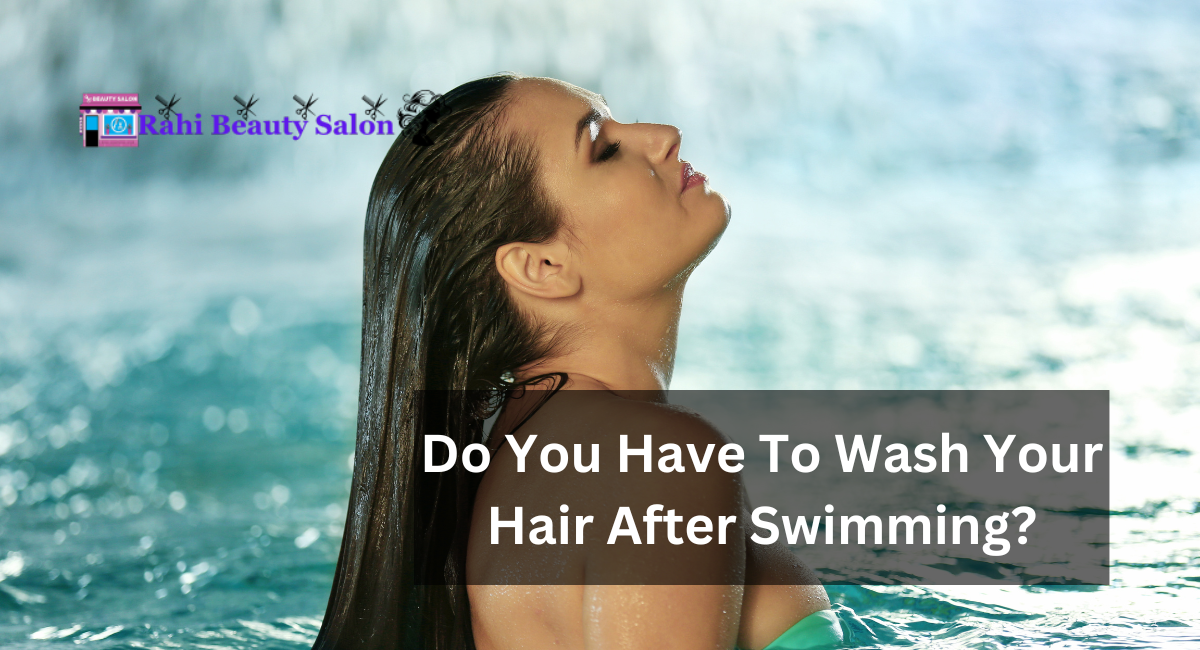Engaging in aquatic activities such as swimming in a pool or the ocean is an inextricable component of summer enjoyment. Nevertheless, a frequently pondered inquiry among swimmers is whether or not hair should be washed following a night of swimming. Whether you are an avid water enthusiast or an occasional swimmer, the response to this inquiry may influence the well-being and aesthetic appeal of your tresses.
This article aims to examine the rationale for post-swim hair care, the possible hazards associated with neglecting to wash one’s hair, and offer practical advice on maintaining well-groomed tresses after a swim.
Do You Have To Wash Your Hair After Swimming?
It depends on various factors, including the water you’ve been in, your hair type, your particular preferences, and whether you should wash your hair after swimming. Let’s dissect it further:
1. Pool Water Chlorinated
It is recommended that individuals cleanse their hair after using a chlorinated pool. The harsh nature of chlorine can rob hair of its natural oils, rendering it brittle and dry. A brief rinsing with potable water can eliminate chlorine and mitigate its harmful impacts.
2. Saltwater
The dehydrating impact that saltwater from the ocean can have on hair is comparable. Although immediate hair washing may not be necessary, cleansing with clean water after swimming can eliminate salt and mitigate the risk of excessive drying. When dealing with hair that is especially brittle or sensitive, applying a leave-in conditioner may prove advantageous.
3. Simple Water
In general, freshwater swimming in a lake or river is gentler on the tresses. It may only be necessary to wash your hair if it is visibly filthy promptly. A mere rinsing with potable water should be adequate.
4. Certain Hair Types
The variety of hair exerts a significant influence on you. Regular post-swim cleansing may be preferable for individuals with oily hair to prevent the accumulation of excessive oil. Individuals with dry or curly hair must cleanse less frequently and prioritize moisture retention.
5. Preserving And Upkeepin
Mainly, if you swim frequently, you should don a swim cap to shield your tresses while you swim. Furthermore, hair oil or leave-in conditioner can assist in safeguarding hair against the dehydrating impacts of saline or pool chemicals.
What Happens When You Don’t Wash Your Hair After Swimming?
Depending on the type of water one has been in, failing to cleanse one’s hair after swimming may result in a variety of potential problems and repercussions:
1. The Accumulation Of Chlorine In Chlorinated Pools
Failure to cleanse hair after using a chlorinated pool may result in the accumulation of chlorine on the hair. This accumulation may eventually result in thin, brittle, and discolored hair.
2. Buildup Of Salt
Failing to rinse one’s hair after swimming in saline may result in the accumulation of salt film. Due to its dehydrating properties, salt can cause hair to feel desiccated and coarse.
3. Matting And Tangling
Swimming in a pool or the ocean can cause hair to become entangled and matting, particularly if it is not detangled or combed afterward. This can lead to the development of tangles and make hair management difficult.
4. Individuals With Oily Scalp
Neglecting to cleanse your hair after a swim may result in combining oils from your scalp with pool chemicals or salinity, which could cause your naturally oily hair to appear and feel greasy.
5. Inadequate Hair
Without appropriate maintenance, prolonged exposure to chlorine or salt water can weaken hair, making it more susceptible to breakage and damage.
6. Lack Of Vibrancy And Discoloration
When exposed to the sun, hair exposed to chlorinated water may become brittle and even change color. Particularly susceptible to a chemical reaction with chlorine is blonde hair.
How Long Can One Swim Without Having To Take A Shower?
The extent to which one can go without showering after swimming is significantly influenced by many factors, encompassing the characteristics of the water encountered, individual hygiene inclinations, and the particular circumstances at hand. The following are some factors to bear in mind:
- The nature of the water in which you have been engaging in aquatic activities is a crucial factor. It is advisable to cleanse shortly after swimming in a chlorinated pool or saltwater to eliminate any residual pool chemicals or salt. Conversely, while swimming in freshwater environments such as lakes or rivers may not necessitate an immediate transition to the shower, it is still advisable to cleanse one’s body with fresh water.
- Individuals possess diverse personal sanitation preferences. While some people shower immediately after swimming to maintain a sense of cleanliness and eliminate any possible contaminants, others may choose to delay a few hours or even until their usual shower period.
- Individuals with sensitive skin may experience irritation when exposed to chlorine or saline, prompting them to evacuate the affected area immediately to avert discomfort.
- To mitigate potential damage or dryness caused by pool or saltwater exposure, one may shower and cleanse their hair promptly following swimming.
- Should you have imminent plans or engagements following swimming, it may be necessary to expedite your shower. For instance, you would likely want to shower before going to work, school, or a social occasion to feel and feel refreshed.
In addition to the products you use, how you treat your hair after swimming is crucial for preserving its health and beauty. Whether or not you should wash your hair after swimming is primarily determined by the characteristics of the water you’ve been in and the specific requirements of your hair. One can achieve a harmonious coexistence between partaking in aquatic excursions and maintaining the utmost quality of one’s hair by comprehending the relevant factors and adhering to a few fundamental guidelines.
Thanks for reading.
